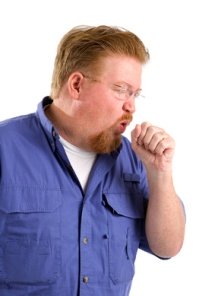Find a Mold Specialist Now
Click or Call, Toll-Free 24/7
Indoor Mold Allergy Symptoms
Seasonal allergies and mold allergy symptoms are very similar, and in fact some seasonal allergies are a result of outdoor mold. Allergies to mold symptoms often occur in the spring and summer, because the warmer months are the perfect time for outdoor mold to grow. During the warmer seasons, mold and fungus thrives, and they release microscopic spores into the air. Allergies to mold symptoms will worsen if a person is exposed to higher levels of mold spores, and the higher the spore count the worse the symptoms become.
Mold Allergy Symptoms
The symptoms are very similar to typical hay fever symptoms: stuffy nose, runny nose, sneezing, coughing, wheezing, asthma, and itchy eyes. During the warmer months, it may be a good idea to take medication to reduce allergies to mold symptoms if they are severe. You can talk with your doctor in order to determine the best treatment plan available.
If you find that your mold allergy symptoms continue into the colder months of the year, then it is possible that your symptoms are actually caused by indoor mold problems. Often, people begin treating their symptoms assuming that it is outdoor mold that is causing the problems. But, if mold is present in their home or office, then continued exposure to the mold throughout the year will cause them to continue having symptoms.
When you are experiencing mild to severe allergies to mold symptoms, it is a good idea to visit with your doctor. Also, you should have your home tested for mold in order to identify any potential problems within your house. A professional mold tester can be hired to test the air in your home for mold spores, and they will help you to locate the source of the mold.
Indoor Mold Testing
Don’t make the mistake of doing the mold testing by yourself. Some people purchase mold testing kits at their local home improvement store, but those kits are not as reliable as the high quality testing equipment that mold specialists use. In fact, testing and treating mold without consulting with a professional may result in continued mold growth in your home. If mold continues to grow, then your mold allergy symptoms will not go away.
Some people accidentally make their allergies to mold symptoms even worse, because they locate the mold problem and cause the spores to spread by trying to clean up the mold themselves. If the cleaning is not handled with care, it is very likely that millions of mold spores will become airborne, and they will contaminate other areas of the home.
When this cross contamination occurs, the homeowner usually does not realize that there is a problem. The mold spores are microscopic, and they cannot be detected with the naked eye. Those mold spores can be pulled into the HVAC system and spread even more when the heater or central air conditioner runs.
Remember that your mold allergy symptoms will continue to exist as long as you are exposed to mold spores. If you want to completely get rid of your symptoms, it is essential to consult with a professional in order to determine the best cleanup plan to eradicate the mold. Mold specialists have experience working with different mold types in varying environments within a home, and they will know how to effectively clean up the problem.
Once you have cleaned up the mold problem, it is necessary to test the air in your home again in order to be sure that the mold spores are gone. Additionally, take a few proactive steps to prevent future mold growth, because prevention is much easier than the cleanup process.
Benefits of Having a Professional Test Your Home for Mold
- Professionals have the most accurate testing equipment and are trained to properly conduct mold tests and interpret the results.
- They know how to locate mold in places where it is often missed by homeowners, including inside walls and inside heating and air conditioning ducts.
- They will write a mold removal protocol for you, complete with safety precautions that should be taken to prevent exposure to further health risks.
- They will also return to the home after the mold removal has been completed to repeat the test, making sure no mold was overlooked during the cleanup process.
Follow the link for a list of professionals that test for mold in the home in your area.
Return From Mold Allergy Symptoms To Our Main Symptoms Of Mold Allergies Page
Black Mold Health Symptoms Home Page





